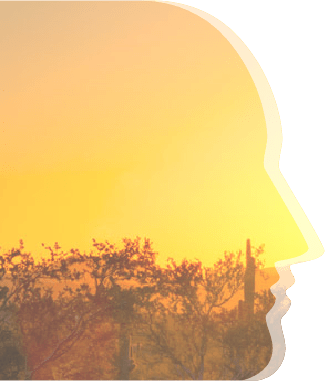Sensorineural hearing loss (SNHL) is defined as hearing loss originating from the cochlea (inner ear) or the auditory (hearing) nerve. The cochlea contains thousands of outer and inner hair cells that transduce the mechanical energy of sound into electrical energy and then deliver that electrical energy to the auditory nerve. The hair cells provide information about the frequency and intensity of the sound. The auditory nerve then transmits sound information to the brain, where a variety of complex pathways help us decipher what was actually heard. Therefore, much of hearing as we perceive it is under the control of the brain rather than the ear.
Most commonly, SNHL is caused by hair cell damage in the cochlea, but it can also be caused by damage to the auditory nerve. SNHL can have a variety of causes, including aging, exposure to loud noises and a variety of medical causes such as exposure to ototoxic medications. Tinnitus, a phantom auditory perception generated in the brain, is often a response to hearing loss.
SNHL is evaluated first by comprehensive audiometry. This includes pure tone testing, speech audiometry, acoustic reflexes and tympanogram. Asymmetric hearing loss may be evaluated by MRI scans, especially if associated with new onset balance abnormalities or unilateral tinnitus. These scans are obtained to rule out retrocochlear mass lesions such as acoustic neuromas (vestibular schwannomas). Treatment depends on the severity of the hearing loss and whether it affects one or both ears. Amplification with conventional hearing aids or a variety of implantable devices, including implantable hearing aids, bone anchored hearing aids and cochlear implants may be options for aural rehabilitation.
SNHL in infants and children may require genetic testing, laboratory tests and temporal bone imaging (CT and/or MRI) to help diagnose the underlying cause. Sometimes, no cause is identified. Aural rehabilitation (with hearing aids or cochlear implants) in a timely fashion is critical for young children as there is a critical window for maximizing their speech/language development.
Why Choose Us
- Dr. Abraham Jacob, Medical Director for Ear & Hearing (E&H) at the Center for Neurosciences (CNS), is fellowship trained in Otology, Neurotology, and Cranial Base Surgery. He is the first and most experienced Neurotologist in Tucson.
- Dr. Jacob was a founding member of the University of Arizona (UA) Department of Otolaryngology prior to his departure and transition to CNS. At UA, he was Vice Chair of ENT and held the rank of full Professor with Tenure. He has an international reputation as an expert for treating ear diseases.
- Dr. Jacob transitioned his practice to the Center for Neurosciences in early 2017 as he felt that the new environment helped him to optimize delivery of personalized ear and lateral skull base care for his patients.
- In addition to amplification with state-of-the-art hearing aids, Dr. Jacob is one of a few surgeons in Arizona to offer the full array of hearing solutions, including Ear Lens, bone anchored hearing implants, middle ear implants, and cochlear implants.
- Our highly-skilled Doctors of Audiology, Mary Rose Goldstein, AuD, CCC-A, Alissa Knickerbocker, AuD and Margaret Fries, AuD strive to provide you with accurate information regarding your hearing status, promote understanding of your hearing and communication needs, increase your knowledge of evidence-based management and/or treatment options, and introduce you to the hearing health tools that can maximize your quality of life reducing the negative impact of hearing disorders.
Ear & Hearing Appointments
Our Otologist/Neurotologist specializes in the medical and surgical care of patients with disorders of the ear and lateral skull base. Otology/Neurotology and Audiology work together to offer complete hearing health solutions.
To schedule an appointment with our Ear & Hearing department, please call us at (520) 795-7750.
Our Physicians’ Goal
Our physicians’ goal is to provide the highest-quality neurological care– the same level of care we would want for ourselves or our loved ones.
We will help our patients to understand their condition, listen to their concerns, answer their questions, and provide the best clinical treatment available.
